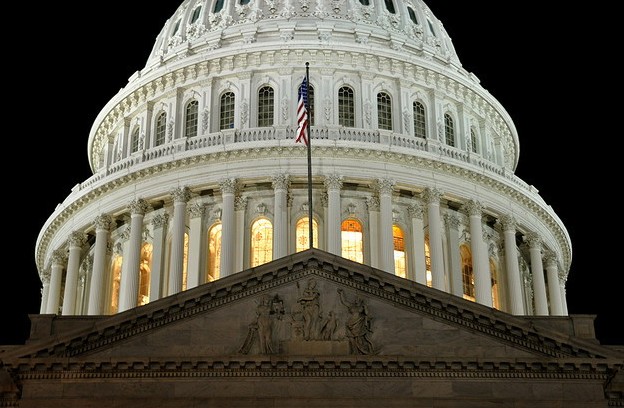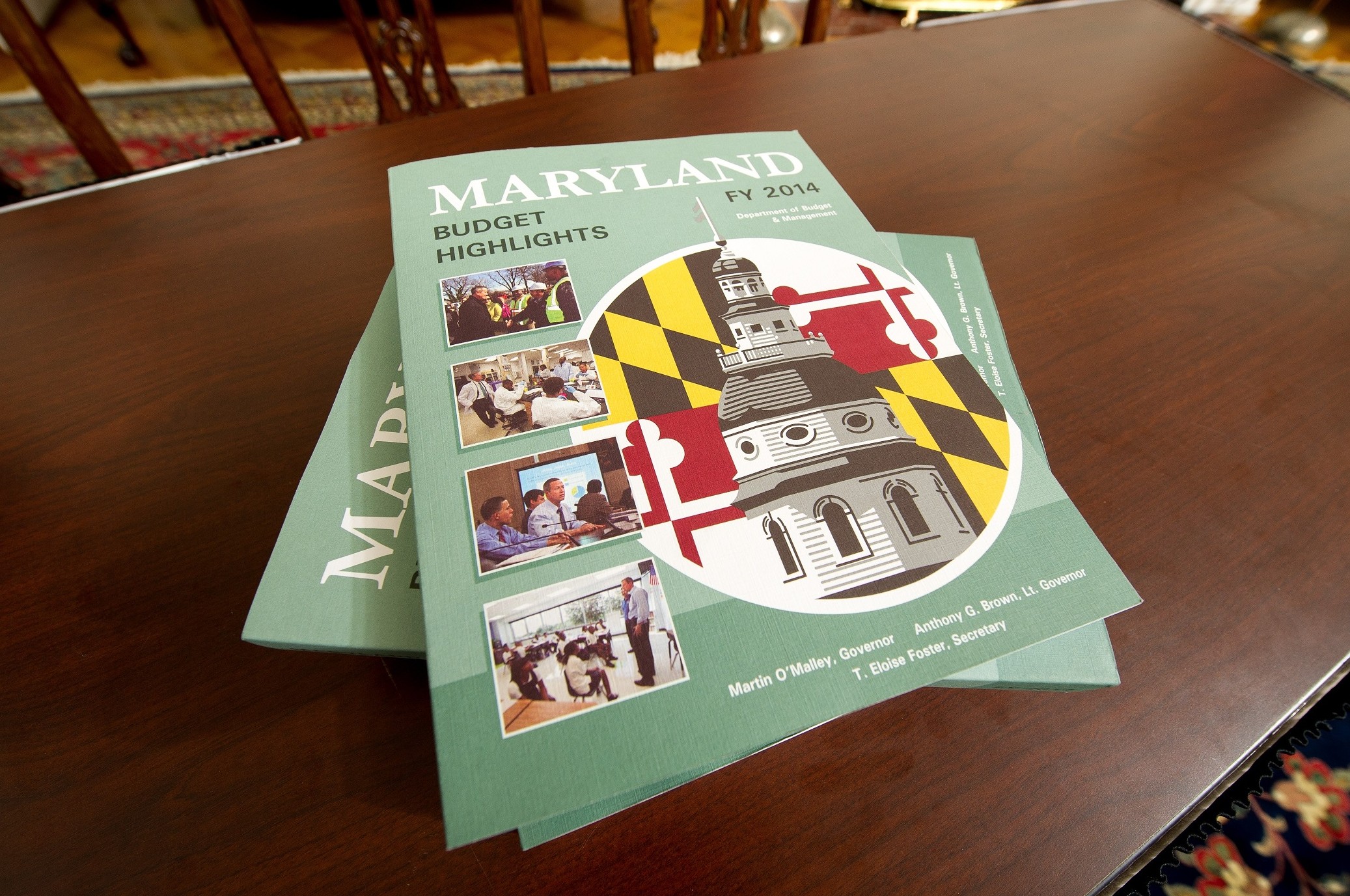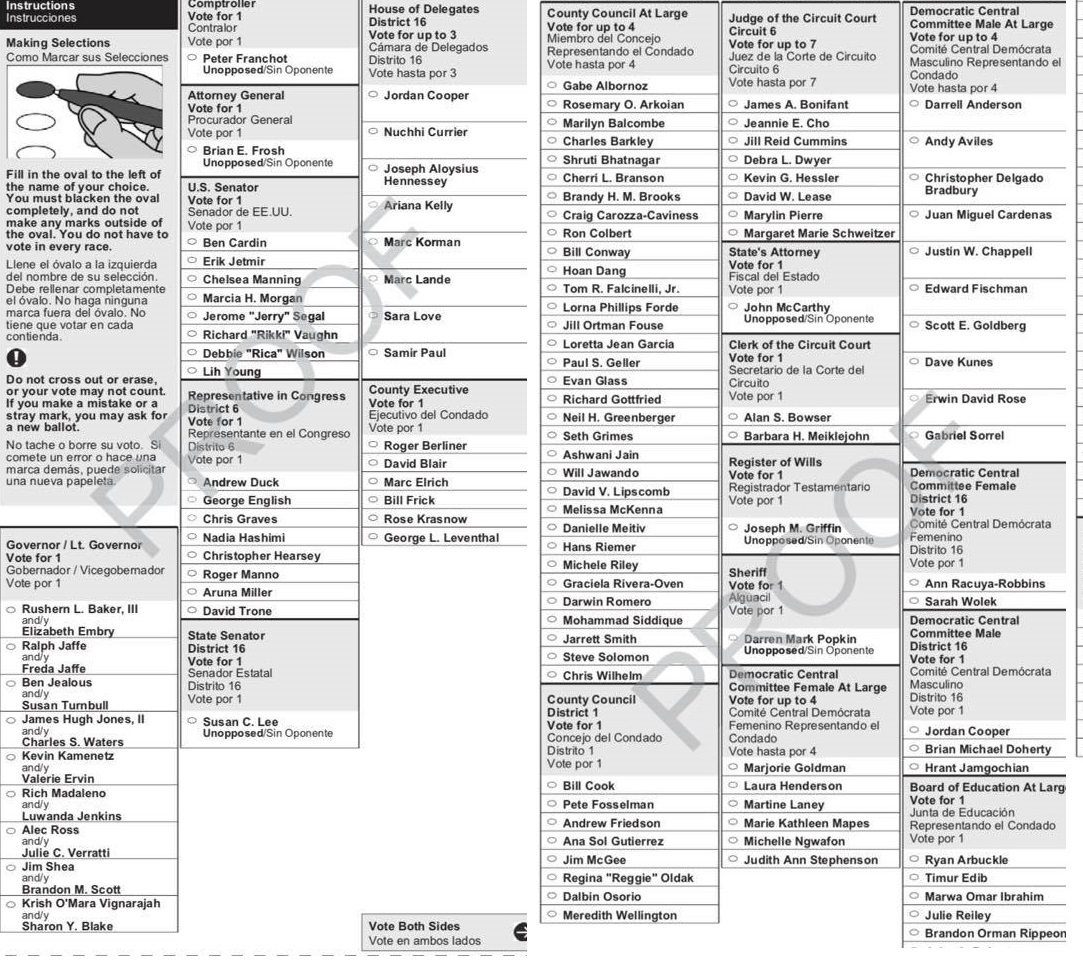By Daniel Menefee
For MarylandReporter.com
The House of Delegates on Friday gave preliminary approval of House and Senate resolutions, HJ2/SJ2, to rescind all four of Maryland’s calls for a constitutional convention. A final vote is expected Monday or Tuesday.
But the Republican minority in both chambers of the Maryland General Assembly have voiced opposition to rescinding the 1975 call to Congress for a balanced budget, when the national debt was $533 billion.
“It takes 31 years to count to one-billion,” said Del. Ric Metzgar, R-Baltimore County, introducing an amendment to let the 1975 call for a balanced budget remain active. “Today’s national debt is rapidly approaching $20 trillion, that is almost $60,000 of debt per person [in the United States].”
The Democrat-sponsored resolutions arose from grave concerns that deep blue Maryland could get summoned to a convention unwillingly with President Donald Trump in the White House and a Republican controlled Congress — and open a convention to an ultra-conservative agenda that would not be limited to tackling the nation’s $20 trillion debt.
Runaway convention
Legal experts, including former Supreme Court justices, have said that the direction of a convention could take on a life of its own once convened and the entire Constitution would subject to a total re-write.
Democratic states fear a convention would tear down progress on issues such as civil rights, abortion, and tax policy — and become the venue to enact extreme austerity measures to make deep cuts to Medicare, Social Security and other safety net programs.
Under Article 5 of the Constitution it takes 34 states, two-thirds, to call a convention and 38 to ratify any changes to the Constitution, four-fifths. Open calls in Maryland and other Democratic states could help the movement to get to the magic 34 and force a convention.
At the beginning of Maryland’s legislative session 28 states had calls for a convention and on Feb. 24 Wyoming became the 29th. If Maryland succeeds in the rescission, by properly notifying Congress it is recalling its applications, the number bumps back down to 28.
There has been a move afoot by conservative groups in recent years to call a convention.
The American Legislative Exchange Council and Citizens for Self Government have helped finance the movement, which calls for term limits and severely curtailing the power of the federal government to borrow money and regulate commerce.
The Balanced Budget Amendment Task Force, a partner organization with ALEC and CSG, are heavily lobbying statehouses in Arizona, Virginia, Kentucky, Minnesota, Montana, South Carolina, and Wisconsin to apply to Congress for a convention.
The call for a convention to require a balanced budget was championed in Maryland and around the country by the late state senator and Senate president, James Clark Jr.
Need to recall all of them
Del. Anne Healey, chair of the House Rules Committee asked the House to resist Metzgar’s amendment because it could draw Maryland into a convention.
“We have to recall all of them,” Healey, D-Montgomery, said. “It’s a dangerous thing to do … we don’t know if there will be any way to stop a constitutional convention from running amok.”
“In the current politically charged atmosphere in our country there’s no telling what could happen,” she said. She said the country should stick to the “tried and true method” changing the Constitution through amendments by Congress.
Del. Jason Buckel, R-Allegany, said no one should “fear a democracy” and that the need for a balanced budget should transcend party lines.
“I don’t think we should fear a legally established process that is very clear and very obvious,” Buckel said. “While we all have different political points of view, I don’t think anyone should have the point of view that the national deficit is OK.”
He said both parties were responsible for the behemoth national debt.
But Healey again reiterated that a convention would be “uncharted territory,” and quoted former Supreme Court Chief Justice Warren Burger and Justice Antonin Scalia.
Said Berger in 1988:
“There is no way to effectively limit or muzzle the actions of a constitutional convention. The convention could make its own rules and set its own agenda. Congress might try to limit the convention to one amendment or one issue, but there is no way to assure that the convention would obey. After a convention is convened, it will be too late to stop the convention if we don’t like its agenda.”
Said Scalia in 2014:
“I certainly would not want a constitutional convention. Whoa! Who knows what would come out of it?”






This article is not accurate on many items. Case in point: The statement quoting Justice Antonin Scalia indicating his opposition to an Article V. convention. The statement published was only a very small part of what the man said. Maryland Reporter cherry picked that statement to portray the idea that Justice Scalia was opposed to an Article V. convention of the States. This is the text of that exchange between Kalb and Scalia:
MARVIN KALB:
Here is a question from Seth Dawson of the Office of Congressman Denny Hecht. Justice Stevens recently suggested a Constitutional Amendment to modify the Second Amendment. If you could amend the Constitution in one way, what would it be, and why? Justice Scalia.
ANTONIN SCALIA:
I certainly would not want a Constitutional Convention. I mean whoa. Who knows what would come out of that? But, if there were a targeted amendment that were adopted by the states, I think the only provision I would amend is the Amendment Provision. I figured out, at one time, what percentage of the populace could prevent an Amendment to the Constitution. And, if you take a bare majority in the smallest states by population, I think something less than two percent of the people can prevent a Constitutional Amendment. It ought to be hard, but it shouldn’t be that hard.
What Justice Scalia was saying here is that the amendment process to the Constitution is more difficult than it should be. And as he also pointed out, the ability of the States to prevent any amendment proposal from advancing is much, much easier than actually ratifying one. This FACT is not often explained by opponents to an Article V. amending convention. Acquiring 34 States to call a convention is a very difficult thing to accomplish, and should a convention be called, any amendment proposal must then be ratified by 38 State legislatures, or in conventions thereof. It only takes 13 States to say no to ANY amendment proposal for that issue to be nullified. People need to use their heads for something else besides a hat rack, especially legislators who spew out half-truths and propaganda. Anyone who has ever been to a city council meeting, or a school board meeting, or county government meeting, or even their own State legislature or assembly has been witness to an organized, controlled meeting with a specific agenda that was obeyed. These type meetings occur daily all across the United States, and rarely, if ever, denigrate into chaos. It is sheer insanity to believe that a convention of the States, and its’ agenda would not be strictly controlled.
The runaway convention myth:
https://d3n8a8pro7vhmx.cloudfront.net/conventionofstates/pages/263/attachments/original/1448454678/Article_3-Answering_the_Runaway_Convention_Myth.pdf?1448454678
The States surrendered their power to influence the federal government with the passing of the 17th Amendment (direct election of US Senators). Thereby, allowing the systematic reduction of the Sovereign Powers they held in lieu of the Federal Government. Article V is in the Constitution for such a situation. Convention of States is the answer to rein in the Federal Government’s overreach. No matter what Amendments come out of a successful Article V convention, it requires the ratification by 38 states to enact those Amendments. Said another way – 13 states can negate any Amendments that might harm, damage, or offend the nation. There exists no power in Article V to wholesale ‘rewrite’ the Constitution.
Said Scalia in 2014:
“I certainly would not want a constitutional convention. Whoa! Who knows what would come out of it?”
No one disagrees with that statement. The misconception comes from those that deliberately confuse a constitutional convention with an Article V convention of states. Some fear-mongering groups deliberately mislead readers by calling a convention of states a constitutional convention or “con-con.” Article V gives the states authority to call a convention for proposing amendments to ‘THIS CONSTITUTION.’
true. buuut….The article of confederations required a unanimous vote in order to be amended. “nor shall any alteration at any time hereafter be made in any of them, unless such alteration be agreed to in a congress of the united states, and be afterwards con-firmed by the legislatures of every state.”
And yet the constitution declared that “The Ratification of the Conventions of nine States, shall be sufficient for the Establishment of this Constitution between the States so ratifying the Same.”
So it isn’t completely irrational to fear that the ruling class will ignore the rules and do whatever they want if they think they can get away with it.
Obviously the wise men who gave us our Constitution and placed Article 5 and Convention of States, debated for the best solution that was peaceful to bring an out-of-control central government back under the original intent of our Declaration and our Constitution. They looked at all the ramifications of giving us the tool and trust us to act as wisely as they did. They also looked at the ramifications IF we did NOTHING. That was far worse than any weak excuse I’ve heard so far. I’ll stick with the wisest men this nation has ever known and support Convention of States.
Like congressional democrats, MD democrats profess to support the will of the people . . . as long as the people know their place.
“Said Scalia in 2014: ‘I certainly would not want a constitutional convention. Whoa! Who knows what would come out of it?’”
First of all what would come out of “it” would be the rest of the 2014 quote by Antonin Scalia when he was interviewed on The Kalb Report, the part always omitted by the opposition, that shows Scalia was just as much in favor of a convention of states to propose amendments then as he was in 1979:
“During the program, host Marvin Kalb asked a question of Seth Dawson from the office of Congressman Denny Heck (D-Wash.) regarding the recent discussion television and radio program jointly produced by the National Press Club Journalism subject of the program was ‘A Conversation About the First Amendment.’ The question was, ‘if you could amend the Constitution in one way, what would it be, and why?’ The first to answer was Scalia, who replied:
“I certainly would not want a Constitutional Convention. I mean whoa. Who knows what would come out of that? But, if there were a targeted amendment that were adopted by the states, I think the only provision I would amend is the Amendment Provision. I figured out, at one time, what percentage of the populace could prevent an Amendment to the Constitution. And if you take a bare majority in the smallest states by population, I think something less than two percent of the people can prevent a Constitutional Amendment. It ought to be hard, but it shouldn’t be that hard.” [From “New American” (John Birch Society), Wed., Feb. 24, 2016: http://www.thenewamerican.com/usnews/constitution/item/22625-justice-scalia-s-warning-of-a-constitutional-convention%5D
…or, on the application of the legislatures of two thirds of the several states, shall call a convention for proposing amendments, which, in either case, shall be valid to all intents and purposes, as part of this Constitution, when ratified by the legislatures of three fourths of the several states, or by conventions in three fourths thereof, as the one or the other mode of ratification may be proposed by the Congress;….
Article Five of the United States Constitution describes the process whereby the Constitution, the nation’s frame of government, may be amended by the calling of a convention of the states. The scope will be limited to proposing amendments to the Constitution of the United States that
¥ impose fiscal restraints on the federal government,
¥ limit the power and jurisdiction of the federal government, and
¥ limit the terms of office for its officials and for members of Congress. The convention’s reach is limited to the application.
¥ Any action beyond that would be worthless. The convention cannot go beyond it. Period.
¥ State amendments considered must be approved by a majority of the states represented.
¥ Delegates are controlled by their state legislatures. Each convention committee, each state delegation is chosen by the state legislature as the state legislatures instruct. This means that each member of the convention is recallable by the state legislatures.
¥ Amendments proposed must be ratified by 38 states to be valid; 13 states can defeat any amendment.
Add your name to the petition and take back your state rights. http://www.conventionofstates.com
I heard the debate, and this article accurately reflects it. However, Del. Healey cherry-picked quotes from runaway convention advocates. The Dept. of Justice, the ABA, and the Congressional Research Service have issued reports indicating that a limited convention is possible. The convention application under Article 5 has been used many times to force Congress to propose a needed amendment. It is an indispensable tool of citizens who want to broaden and deepen democracy. Citizens and legislators should support Article 5 applications when they support the substantive issue and oppose them when they do not feel that the proposed topic of the amendment merits support.
I am working with a group (Get Money Out – Maryland) that supports a pending resolution (HJ 6 and SJ 4) to apply for a convention to draft an amendment to strengthen voting and overturn Citizens United v. FEC.
The statist Progressive Democrats are absolutely terrified over the prospect of being limited in what they can do and the loss of powers that they have claimed for themselves and thus, their opposition…
Also, if the Convention of States was so dangerous, why is it in the Articles of the Constitution ?
Our Founding Fathers were far wiser than the Maryland Democrats and actually foresaw the need for the citizens to maintain their control over a “run away government” such as is in Maryland…